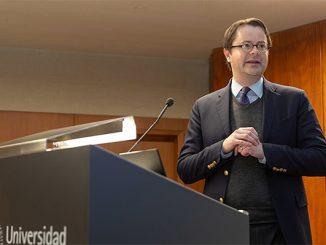
Pope appoints Catholic Harvard professor to Vatican social sciences academy
Tyler J. VanderWeele, a Catholic, is an epidemiologist and director of the Human Flourishing Program at Harvard University. […]

Tyler J. VanderWeele, a Catholic, is an epidemiologist and director of the Human Flourishing Program at Harvard University. […]

Father Fermín González Melado, who was recently named a “chaplain of His Holiness” by Pope Leo XIV, explains the qualifications and purpose of bestowing this honorary title. […]

Pope Leo XIV will preside over the traditional Ash Wednesday procession and Mass on Feb. 18 on Rome’s Aventine Hill, an important place of Christian pilgrimage for more than 1,500 years. […]

The pontiff urged “coherence between faith and life” and persistent prayer for peace. […]

In his catechesis before the Angelus, Leo said Jesus fulfills the Law by calling Christians beyond minimal righteousness to great love. […]

David Ryan, a 61-year-old Irishman who suffered sexual abuse as a teenager, shared his story face-to-face with Pope Leo XIV, the first time the pope met with a victim individually. […]

A popular summer destination for tourists, Ostia will be the first of five parishes where the pope, as bishop of Rome, will celebrate Mass on Sundays in February and March. […]

Pope Leo XIV urges Catholics to listen more closely to God and others — and to “disarm” their language by fasting from words that wound — in his message for Lent 2026. […]

The country’s growing economic and social instability prompts request to delay meeting with Pope Leo XIV. […]

Doctrinal office tells traditionalist group that consecrating bishops without papal mandate would mean a “decisive rupture” of communion. […]
© Catholic World Report